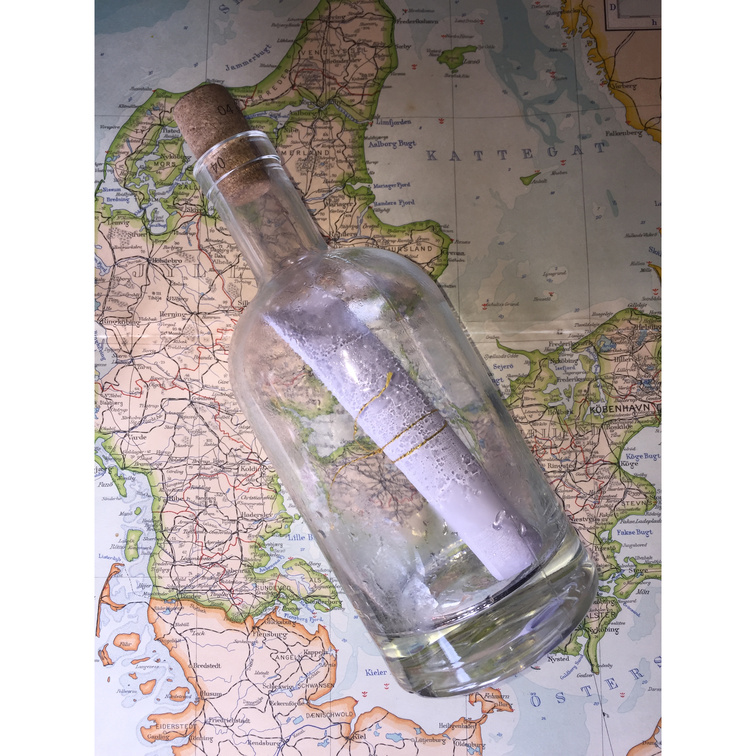Coronablog on the Periphery | Kirsten Marie Raahauge

CORONABLOG ON THE PERIPHERY IV
APOCALYPSE POSTPONED – CORONATIMES AND ISOLATION
One thing is that the state of exception following the covid-19 outbreak isolates the regions of Denmark, which triggers a movement towards localization, while at the same time the broadcast of regulations and “phases” designed to lead us safely through the crisis enhances the feeling of one nation.
Another thing is that the small-scale isolation in our homes has an impact of another kind on our lives. Here, we should stay inside as much as possible, avoiding others. These home-as-cells within a grid that we have become part of, is filtering things and people and virtual flows in and out, following new rules: no people who are not part of the household, wash your hands, be hygienic inside the home, keep stuff out of the home, or clean what comes in, keep inside. It was quite another matter, when I conducted fieldwork in homes of well-off neighborhoods in two Danish provincial cities. At that time, the major concern was to get rid of old, heavy, unpractical things in order to keep up your home as efficient, practical and spacious. Neighbors drifted in and out of the houses, and virtual platforms were used without much concern about dangers, such as spam, phishing, intruders or fake news.
These cells within cells that we live inside are there in order to postpone, or hopefully avoid the apocalyptic conditions, a pandemic could cause. Thus, while feeling safe and sound inside the cells, there is this feeling of disaster happening at other places globally. This produces a sensation of living in a simulated reality – either your confinement is a luxury cell that serves as a membrane to the real world, making your world seem unreal and the surrounding possibly dangerous or infected world real, or the world around us, brought to us by way of the many social platforms and media, seems simulated, due to the strange, seemingly insurmountable gap between the now here of the safe cell and the now there of infection, decease and death.
Jean Baudrillard wrote about these sensations of simulation, both in his book America (1986), where the well-off American homes were described as cocoons in a membrane, as a simulated reality, and in his text on the Gulf war (1991), where the direct TV broadcast of the war made it seem to be virtual, it seemed like an event that did not take place, as a hyper-reality. Where the Golf war produced rather an unearthly imagery, the media images of covid-19-related disasters are much more down to earth, they look like the real world, as they display hospitals, medical technology, infected bodies, vans transporting the bodies of those that have died from corona, and church yards.
The sensation of simulation turning both inwards (the membrane-life inside the cells) and outwards (the news of disaster of incredible dimensions) is contested by another factor: the sudden presence of reality in the simulated realities of TV-shows: no audience, no guests, no nothing, only the host of the show. Of course, there is the split screen showing the guest interviewed in his or her home or another studio in one part of the TV-screen, and the host in the empty studio where the show usually takes place. This is the real realness coming back into the simulations of TV, tripping up the seamless flow of simulations.
Baudrillard, Jean 1986 (1089) America. New York: Verso
Baudrillard, Jean 1995 (1991) The Gulf War Did Not Take Place. Bloomington, Indiana: Indiana University Press.
Raahauge, Kirsten Marie 2007 In and out of the house. Housing Hau in Sønderborg and Frederikssund in Knowledge, Technology, and Policy 20, Springer Journal (chief ed. Ilpo Koskinen), pp281-289
Raahauge, Kirsten Marie 2007 Ved vejen – I komplekset, Om det globale, det lokale og det materielle [By the roadside, in the block. About global, local and material matters] in Hjem og Bolig, Dansk Sociologi (Home and Residence, Danish sociology) 18(4) (eds. K Gram-Hanssen, H Hjort Oldrup & M Ottosen), pp31-49

